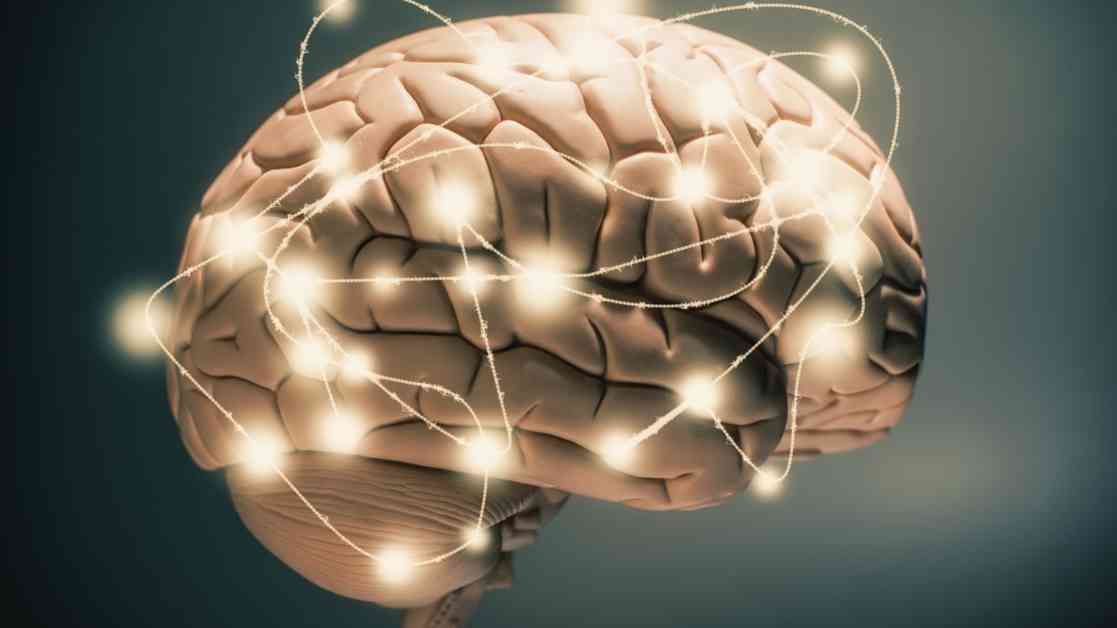Metabolic Brain Boost Enhances Memory in Alzheimer’s Mice
Aging and Alzheimer’s disease are two conditions that often leave the brain starved of energy, impacting memory and cognitive functions. However, recent research has shed light on a potential breakthrough in the field of Alzheimer’s treatment that involves enhancing brain metabolism. While the study was conducted on mice, the implications for humans with Alzheimer’s disease are promising.
The brain is a complex organ that requires a substantial amount of energy to function properly. In the case of Alzheimer’s disease, the brain’s ability to produce energy is compromised, leading to cognitive decline and memory loss. Traditional treatments for Alzheimer’s have focused on targeting amyloid plaques that accumulate in the brain, but these drugs do not address the underlying issue of impaired brain metabolism.
Researchers at Stanford University embarked on a study to investigate the role of an enzyme called IDO1 in Alzheimer’s disease. They hypothesized that malfunctioning IDO1 could be contributing to the brain’s energy deficiency in Alzheimer’s patients. To test this theory, the team genetically eliminated the enzyme from mice that exhibited symptoms of Alzheimer’s disease. Surprisingly, the mice showed improved brain metabolism and cognitive function, challenging the researchers’ initial expectations.
The results of the study, published in the journal Science, suggest that boosting brain metabolism could potentially reverse some of the symptoms of Alzheimer’s disease. This novel approach to treatment differs from current medications that target amyloid plaques but do not improve memory or cognitive function. The findings have the potential to transform the way Alzheimer’s disease is approached and treated in the future.
The Science Behind the Metabolic Brain Boost
The unexpected discovery that removing the IDO1 enzyme improved brain metabolism in Alzheimer’s mice prompted the research team to delve deeper into the underlying mechanisms. They found that the absence of IDO1 altered the behavior of astrocytes, a type of brain cell that plays a crucial role in providing energy to neurons. In Alzheimer’s disease, the presence of toxic plaques and tangles inhibits the function of astrocytes, leading to a decline in brain metabolism.
By removing IDO1, the researchers were able to restore the function of astrocytes, allowing them to produce lactate, a chemical essential for brain energy production. This restoration of normal brain metabolism was associated with improved cognitive function in the mice. Further experiments on human astrocytes and neurons derived from Alzheimer’s patients confirmed the potential efficacy of this approach in restoring brain function in humans.
The study highlights the importance of considering metabolic changes in the brain as a factor in Alzheimer’s disease, in addition to the presence of amyloid plaques and tangles. The findings suggest that metabolic treatments that enhance astrocyte function could complement existing Alzheimer’s medications that target amyloid plaques. By addressing the underlying issue of impaired brain metabolism, these treatments have the potential to improve memory and cognitive function in Alzheimer’s patients.
The Role of Astrocytes in Alzheimer’s Disease
Astrocytes, often referred to as “worker bees” in the brain, play a vital role in supporting neuronal function and brain metabolism. In Alzheimer’s disease, the dysfunction of astrocytes contributes to the decline in brain energy production and cognitive function. The research findings suggest that restoring astrocyte function through metabolic treatments could help alleviate the symptoms of Alzheimer’s disease.
Dr. Shannon Macauley, an associate professor at the University of Kentucky, emphasizes the importance of considering the role of astrocytes and other brain cells in Alzheimer’s research. While neurons have been the primary focus of Alzheimer’s studies, the new findings underscore the significance of understanding how other brain cells contribute to the disease process. By targeting astrocytes and enhancing brain metabolism, researchers may be able to develop more effective treatments for Alzheimer’s disease.
The analogy of the brain as a beehive, with neurons as the queen and astrocytes as the worker bees, illustrates the interconnectedness of brain cells in maintaining cognitive function. When astrocytes are unable to perform their role effectively due to the presence of toxic plaques and tangles in Alzheimer’s disease, the entire brain system is compromised. By targeting astrocyte function and restoring brain metabolism, researchers aim to improve overall brain function in Alzheimer’s patients.
Potential Implications for Alzheimer’s Treatment
The promising results of the study suggest that metabolic treatments that enhance brain metabolism could revolutionize Alzheimer’s treatment in the future. By targeting astrocyte function and restoring normal brain metabolism, these treatments have the potential to improve memory and cognitive function in Alzheimer’s patients. While current medications focus on removing amyloid plaques, the new approach addresses the underlying issue of impaired brain metabolism.
Dr. Macauley emphasizes the importance of replicating the study results in human clinical trials to validate the efficacy of metabolic treatments in Alzheimer’s patients. By combining existing Alzheimer’s medications with metabolic treatments, researchers may be able to provide a more comprehensive approach to treating the disease. The potential for improving memory and cognitive function in Alzheimer’s patients through metabolic treatments offers hope for a new era of Alzheimer’s therapy.
In conclusion, the study on metabolic brain boost in Alzheimer’s mice represents a significant advancement in the field of Alzheimer’s research. By targeting brain metabolism and restoring astrocyte function, researchers have uncovered a potential avenue for improving memory and cognitive function in Alzheimer’s patients. The findings pave the way for future studies and clinical trials to validate the efficacy of metabolic treatments in humans. With further research and development, metabolic treatments could offer a promising new approach to treating Alzheimer’s disease.



























